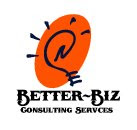In today's fast-paced, convienience-first, technologically-saavy society: working from home has become the new norm. Telecommuting is the money-making method for everyone from stay-at-home mom's to wall street executives. However, as my favorite business and financial advisor (Jean Chatzky) notes: "If you want to work effectively from home, you need to put some serious thought into how to best set up that home office." Here are three quick tips to get you started.
Set up shop in a spare room
If you want to maximize productivity in your home office, working out of the dining room amy not be your best bet. Your best alternative from both a productivity and tax perspective is to use an alternate room. Do you have a finished basement, a bedroom (with closet for supply storage), or even a private den? Make these spaces work for you! Be careful about the zoning restrictions and other regulations in your area. Double check before setting your home office up.
Go online to compare products, services and prices
You will need many things in order to have a succesful at-home business. One of these is a fast computer with lots of storage space-shop around and you can probably find one at Walmart, Amazon OR Overstock for about $500. Paul Edwards, career strategy coach and co-author of "Working From Home," (Tarcher, 1999) suggests consolidation whenever possible -- you may need a scanner, fax machine, printer and copier, but "you can get a perfectly good, multi-functional device that serves as your printer, fax machine, copy machine and scanner, for a couple hundred dollars," he says.
Services can also be bundled, so you pay one (usually discounted) bill for Internet, phone and voice-mail. Outsource tasks that you don't have the time or equipment for and be sure to keep receipts and canceled checks for all of the above.
Adhere to Uncle Sam's standards
This step is more simple that some might think. If you want to be able to claim a deduction for your home office, the room must be used exclusively and regularly as your principal place of business.
Lisa Kanarek, home office expert and author of "Home Office Solutions: Creating a Space That Works for You" (Quarry Books, 2004) says: "It has to be a separate space -- it cannot be part of a guest room or a spare bedroom that is occasionally used for overnight guests. And even if it's in a separate room, but the closet within that room has personal items, you cannot use that for a deduction." There is one out: If your home office isn't your primary work space, but you regularly use it to meet with clients, it's still eligible -- but again, only if it the space is used exclusively for business. Also, keep in mind that your business' gross income must be greater than your deductions.
Keep good records. If your home office qualifies for a write-off, you can deduct expenses directly related to your office -- such as the business phone line and Internet connection. According to Chatzky, "for costs that are indirectly related, like utilities, you have to figure out your deduction by comparing the room's measurements to the size of your entire home. The resulting percentage -- say your office is a 10th of your house -- is the portion of your home's expenses, such as mortgage or rent, electric, insurance and the security system, that you can deduct."
Working from home can be incredibly profitable and convienient if you do your research and utilize the right tools. Be incredibly vigilant and seek out every opportunity for a tax write-off, as well as every opportunity to save time and money.
For more helpful hints on setting up your home office, email betterbizservices@yahoo.com or check out our website http://www.betterbizservices.com for a list of services.
Good Luck!

11.19.2007
Subscribe to:
Post Comments (Atom)

No comments:
Post a Comment